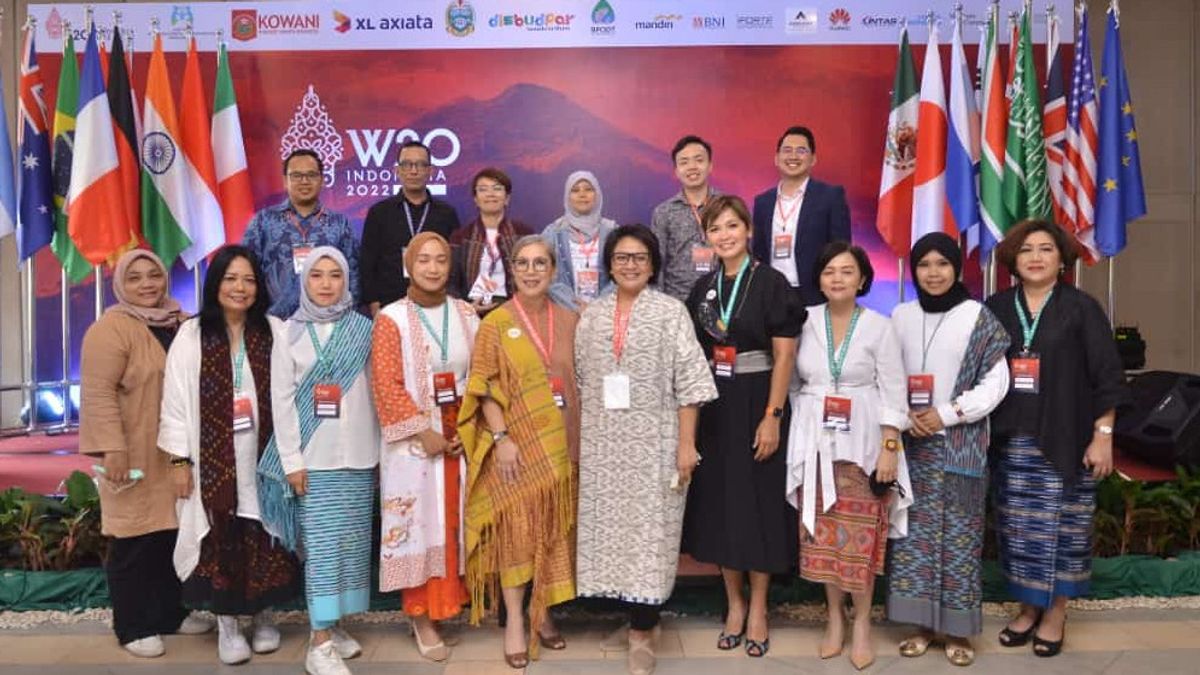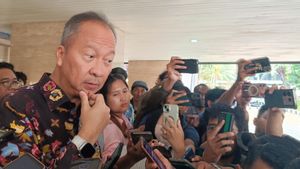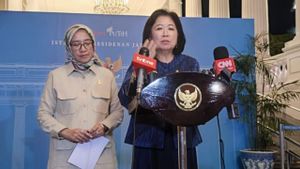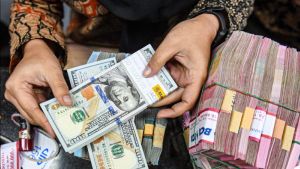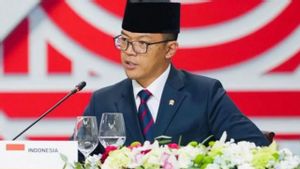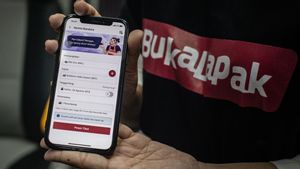JAKARTA - Women micro, small and medium enterprises (MSMEs) have the opportunity to grow and develop. This is in line with the huge potential role of women in the development of MSMEs in Indonesia. The Indonesian Export Financing Agency (LPEI) is also committed to building a shared perception and understanding of the importance of women in the development of export-oriented MSMEs.
The reason is that the driving wheels of MSMEs in Indonesia are women. Based on data from the Ministry of Finance, as many as 52 percent of the 63.9 million micro-enterprises in Indonesia are women. At the small business level, 56 percent of the 193,000 small businesses own are women. Meanwhile, for medium-sized businesses, 34 percent of the 44.7 thousand business actors are women.
Empowerment of women, financial inclusion, and the goal of achieving sustainable development goals, through the creation of environmentally friendly products, characterize the LPEI fostered partners. Sustainability is a commitment from LPEI fostered partners to produce quality products for export, so that they can reach potential markets.
LPEI/Indonesia Eximbank also held a session on developing the potential of MSMEs led by Indonesian women, as a goal to build and develop a variety of MSME businesses spread throughout Indonesia, which presents practitioners, initiators and MSME drivers who have successfully penetrated the world market by carrying out the principle of sustainability. or sustainability.
"LPEI encourages participants to expand business networks or networking. This activity was attended by a number of MSME movers from various fields and regions, as well as young women entrepreneurs who are members of sister-preneurs," said LPEI's Managing Director for Institutional Relations, Chesna F. Anwar in a statement. webinar entitled “Access to Global Market” as part of the Women20 (W20) event, quoted on Sunday, July 24.
In this activity, several LPEI fostered partners shared strategies so that MSME actors, especially women, could compete and push their products worldwide. One of LPEI's fostered partners, Novi Herawati, CEO of CV Nusantara Jaya Food, said that creativity and the use of digital technology are the keys to open access to Indonesian MSMEs in attracting buyers or getting a market for suitable products.
Meanwhile, Widya Hana Sofia, CEO of PT Masagenah Group is an MSME that is actively managing palm oil waste into value-added products which are also exported. He has built the awareness of oil palm farmers to collect waste in the form of oil palm fronds to be used as goods of economic value. The collective awareness of the community is the driving force for the success of the business carried out by Widya with villages that have joined and collaborated with BUMDes.
The story shared by Dewi Harlasyanti as CEO of PT Diva Prima Cemerlang is no less interesting. He has made use of human hair waste into eyelash products. When starting her business, Dewi did research on the potential of the eyelash market, and in fact Indonesia is the world's largest supplier of eyelashes.
The balance of time with family is Dewi's consideration when exploring the eyelash business for a number of women who live in Purbalingga. Flexible time has attracted hundreds of women to join in the production of natural eyelashes made by Diva Prima Cemerlang.
“We empower women, 90 percent of women workers, to do it in their own homes or in locations that are prepared as workshops or joint production sites. They have choices according to family conditions and do not sacrifice their main duties as wives or housewives,” said Dewi.
On the same occasion, Trini Tambu, CEO of Palantaloom, a songket designer and producer based in Batu Taba, West Sumatra, explained the importance of creating a unique and quality distinction to increase product competitiveness in export destination countries.
Trini, who succeeded in delivering the Palantaloom songket weaving to occupy the world museum, puts forward the principle of empowering women to preserve Indonesian culture and art in an environmentally friendly manner.
In a special mentorship session “Women's Leadership”, Trini helps MSME actors who consult about the materials used and strategies for selling local weaving. He revealed that MSMEs must maintain consistency and quality in their production. International buyers will make sustainable production processes, for example through the use of natural dyed yarns and environmentally friendly technologies, a factor in their choice.
LPEI Executive Director, Rijani Tirtoso also said that LPEI as the Ministry of Finance's Special Mission Vehicle always carries out various synergies and collaborations in carrying out its mandate to increase exports, especially in the export-oriented SME segment.
Through meetings of export-oriented MSMEs such as the W20 event, Riyani hopes that LPEI together with business actors and other stakeholders will be proactive in establishing a productive ecosystem and maintaining the sustainability of MSME exports. In terms of financial support, LPEI shares information on financial management including access to financing, guarantees, insurance, and consulting services that can be utilized by MSMEs to become more global.
The English, Chinese, Japanese, Arabic, and French versions are automatically generated by the AI. So there may still be inaccuracies in translating, please always see Indonesian as our main language. (system supported by DigitalSiber.id)
